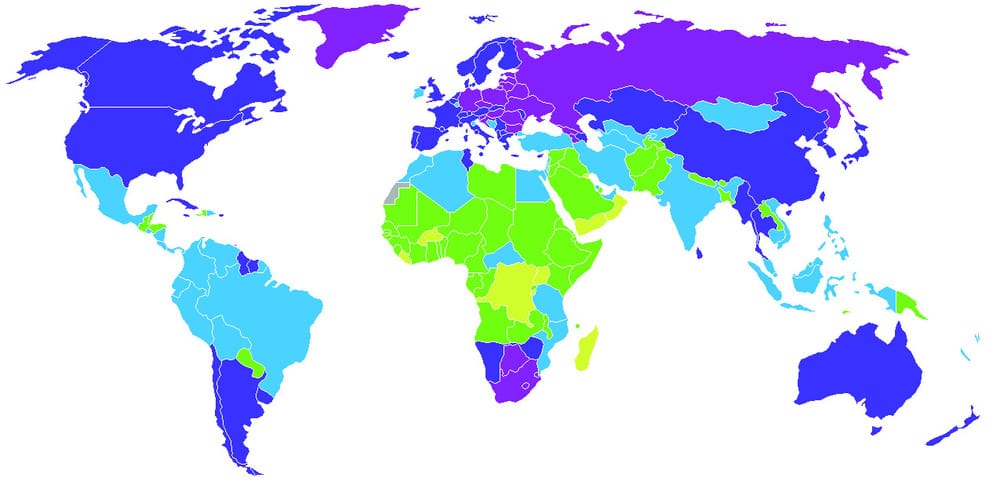7 Billion? That's Numberwang!
Rory Fenton argues that population growth isn’t a priority

This Tuesday, the UN is expected to name a child, somewhere in the world, as the planet’s seven billionth living resident. The news has been greeted with alacrity by much of the same planet’s media, most notably The Guardian, which ran articles such as “Why current population growth is costing the Earth”. The idea that population growth is spelling doom for us all is as popular as it is old. It is just as wrong.
The obsession with population found its most popular spokesperson in the form of Rev. Thomas Robert Malthus who, in the late 18th Century, argued that if the poor of the world kept reproducing at a high rate (the poorest tend to have the highest birth rates) then the only possible result in a world of limited resources will be mass starvation. It was in part due to such ideas that the Irish famine was allowed to run its terrible course. There is some evidence to suggest that nature provides mass population reduction as a way of benefiting those left behind: incomes rose significantly in Britain following the devastation of the Black Death, which left one person in three dead.
World population has skyrocketed since the days of the Plague and Famine, leading academics to postulate that the next Big Disaster could well eclipse all those that went before it. The 20th Century anti population movement reached its zenith in 1968 with the publication of Paul Ehrlich’s ‘The Population Bomb’. The book brought home to non-academic readers the potential horrors of overpopulation with the prediction that hundreds of millions of people in developing countries would perish to hunger in the coming decades. Its front cover proclaimed, “While you are reading these words four people will have died from hunger”.
Those decades have passed and 2.8 billion extra people now walk this Earth, an increase greater than that anticipated by Ehrlich. The result? In the last 50 years, world population may have doubled but agricultural production tripled. Daily food supply per person has increased by around 25%. But the news is even more positive: population growth is beginning to tail off. As people get richer, despite being more able to afford more children, they in general choose to have fewer. Better job opportunities cause people to focus more on their careers and lower rates of child mortality mean fewer children need be born in the first place. The average world birth rate declined from 5.3 births per woman in 1960 to 3.0 in 2006. It is true that these are just averages and some regions have gotten significantly worse. But, these are countries such as North Korea, Somalia and Zimbabwe where it is clearly due to political circumstances, not population. The data paints a clear picture – increasing global population is not leaving people worse off and is anyway reaching equilibrium, not exploding.
But while Ehrlich’s theory seems disproved, many modern environmentalists point to Malthusianism in a new form – global warming. The increased emission of CO2 that growing population creates is endangering the very people who, by being born, create it. This was certainly the message of The Guardian’s articles: more people = more warming.
Nonsense.
More consumption = more warming, regardless of the number of people. I fail to see how a moral person can worry about the existence of a child in a large family in rural Africa who burns a little wood for cooking while we enjoy CO2 intensive Western lifestyles over here. Lifestyles in the developing world are increasing CO2 output in spite of declining fertility. Population just is not the major issue unless we have a population boom in the West.
This is a statistic every population worried person should be made aware of: doubling the incomes of the world’s poorest 650 million people would take the same resources as less than 1% of the incomes of the world’s richest 650 million. Resources mean carbon. Concerned about global warming? Great, hand out condoms to bankers, not Bangladeshis. It’s time to put the population myth to rest.









